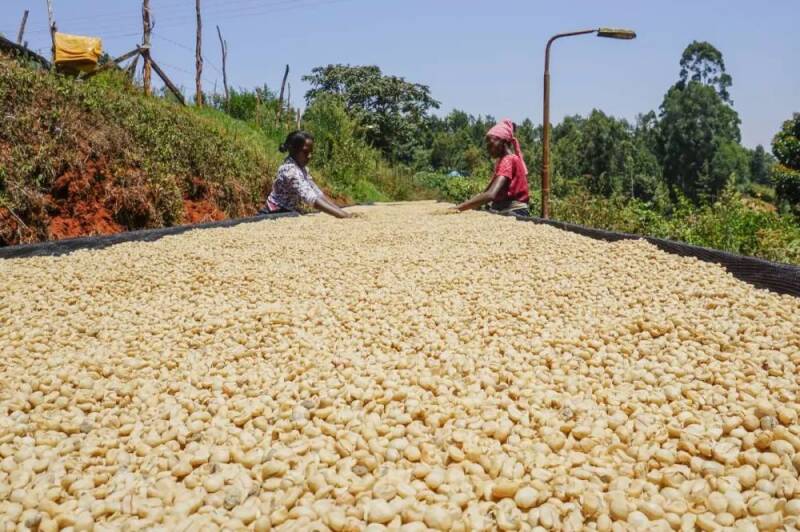Transportation is blocked! Several earthquakes have occurred in Ethiopia in a row
According to Ethiopian media reports, the University of Semera announced that an earthquake measuring 4.7 on the Richter scale struck the Avashfentale (Awash Fentale) district of Oromia on October 26. According to a professor of geology at the university, there were earthquakes of varying degrees from 11:00 to more than 9 p.m. on the 26th, but fortunately there were no casualties.
According to local residents, the earthquake on the 26th was stronger than any other earthquake, and no one was injured. But this is not the first earthquake in the Awash Fentale region. It is reported that since October this year, a number of earthquake events have occurred in the region, the earliest earthquake event is in the evening of October 6, in addition, October 13 and 16, is still the Avash Fentale (Awash Fentale) a number of earthquake events, but these earthquakes did not cause casualties.
As the region is close to Addis Ababa, the capital of Ethiopia, it is only about 150 kilometers apart, so earthquakes and tremors are felt in many parts of the capital. According to the head of the Science Department of the Capital Geophysics and Space University, the earthquakes in different parts of the capital were caused by the earthquake in the Awash Fentale region.
At the same time, he said that the recent frequent seismic activity in the region has not stopped, and the earthquake was caused by lava entering the ground, which will not pose a very serious problem in the capital, but because the earthquake occurred in the location of the East African Rift Valley, residents living in and along the Rift Valley are reminded to be vigilant that similar earthquakes may occur again.
However, due to the frequent number of earthquakes, people are also worried, especially in the coffee industry and transportation industry. It is understood that the earthquake area is not only close to the capital, but also very close to the coffee producing area of Haller. The earthquake may damage the soil in these areas and affect its coffee production.
In addition, successive earthquakes may lead to road foundation settlement, ground cracks, road collapse and so on, and some earthquakes occur in mountainous areas, which are easy to cause landslides and may affect the use of roads. Ethiopia is a landlocked country, its exports and imports depend on the port of neighbouring Djibouti, and the Avash region is one of the main routes through the port of Djibouti, so the earthquake may have a certain impact on the export or import transportation of products such as coffee.
Moreover, shipping at the port of Djibouti at the southern entrance of the Red Sea has been seriously affected due to the intensification of the Red Sea crisis, resulting in the accumulation of Ethiopian coffee at the port of Djibouti, which could be exacerbated by delays in transport if there are current road problems.
But at present, the biggest problems for the Ethiopian coffee industry are still regional security and exchange rate issues. At present, the war in northern Ethiopia has not been effectively resolved, and it has worsened recently, and government forces have even dispatched drones, combat helicopters and other heavy weapons, and launched a number of attacks without success.
Due to the war and exchange rate problems, local prices in Ethiopia are rising seriously, although Ethiopia issued new rules earlier to limit the difference between the buying price and the selling price of foreign exchange trading to 2%. However, the exchange rate is still falling, and many people believe that Ethiopia is not yet stable and will depreciate further. As a result, local prices are only rising, leading to rising costs for growing coffee. According to the latest minimum price of coffee released by the Ethiopian Coffee and Tea Administration, the price of coffee has been raised by 0.5%.

For more information about coffee producing areas, please scan the code directly and follow: coffee comments.
Long press the QR code to follow:

Important Notice :
前街咖啡 FrontStreet Coffee has moved to new addredd:
FrontStreet Coffee Address: 315,Donghua East Road,GuangZhou
Tel:020 38364473
- Prev

Why is dirty coffee so popular? What is the difference between dirty coffee and iced latte? What does Dirty do? What does Dirty mean?
Dirty, we are accustomed to calling it dirty coffee, but of course some people will use transliteration to call it "decent." In terms of the combination of materials, dirty coffee is actually a small cup of iced latte without ice. Many people thought that dirty coffee was a flash in the pan at the beginning, but they never thought that even
- Next

The spokesperson of Lucky Champion was poached to shake milk tea in ancient tea!
▲ Click to pay attention| Daily Boutique Coffee Culture Magazine Coffee Workshop A heavy rain yesterday allowed tourists to the coffee festival to experience the style of African coffee farms without going abroad and experience this unique coffee feast on rainy days and muddy soil. Among the many stalls that insist on opening, milk tea from the Coffee Festival is thrown in random.
Related
- What grade does Jamaica Blue Mountain No. 1 coffee belong to and how to drink it better? What is the highest grade of Blue Mountain coffee for coffee aristocrats?
- What are the flavor characteristics of the world-famous coffee Blue Mountain No. 1 Golden Mantelin? What are the characteristics of deep-roasted bitter coffee?
- Can I make coffee a second time in an Italian hand-brewed mocha pot? Why can't coffee be brewed several times like tea leaves?
- Hand-brewed coffee flows with a knife and a tornado. How to brew it? What is the proportion of grinding water and water temperature divided into?
- What is the difference between Indonesian Sumatra Mantinin coffee and gold Mantinin? How to distinguish between real and fake golden Mantelin coffee?
- What does bypass mean in coffee? Why can hand-brewed coffee and water make it better?
- Unexpected! Ruixing Telunsu lattes use a smoothie machine to foam milk?!
- % Arabia's first store in Henan opens into the village?! Netizen: Thought it was P's
- Does an authentic standard mocha coffee recipe use chocolate sauce or powder? Mocha Latte/Dirty Coffee/Salty Mocha Coffee Recipe Share!
- What is the difference between Vietnam egg coffee and Norway egg coffee? Hand-brewed single product coffee filter paper filter cloth filter flat solution!

